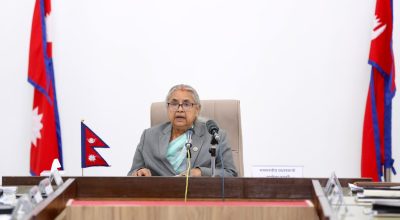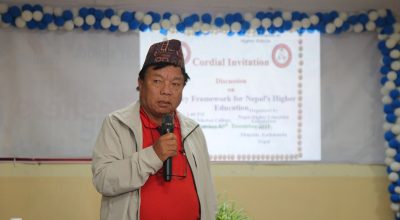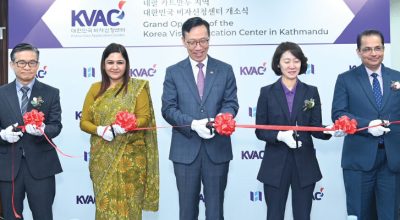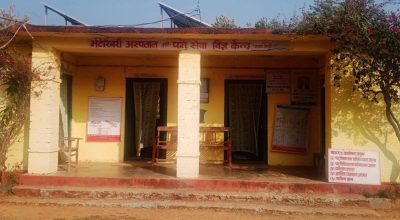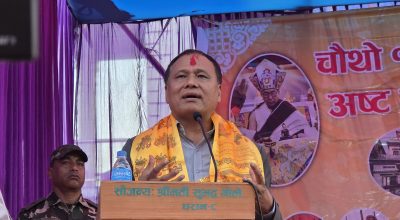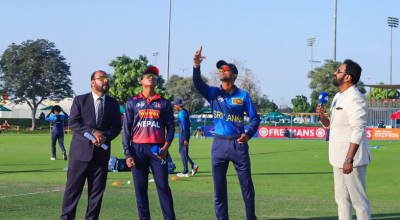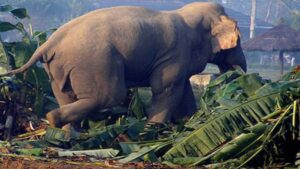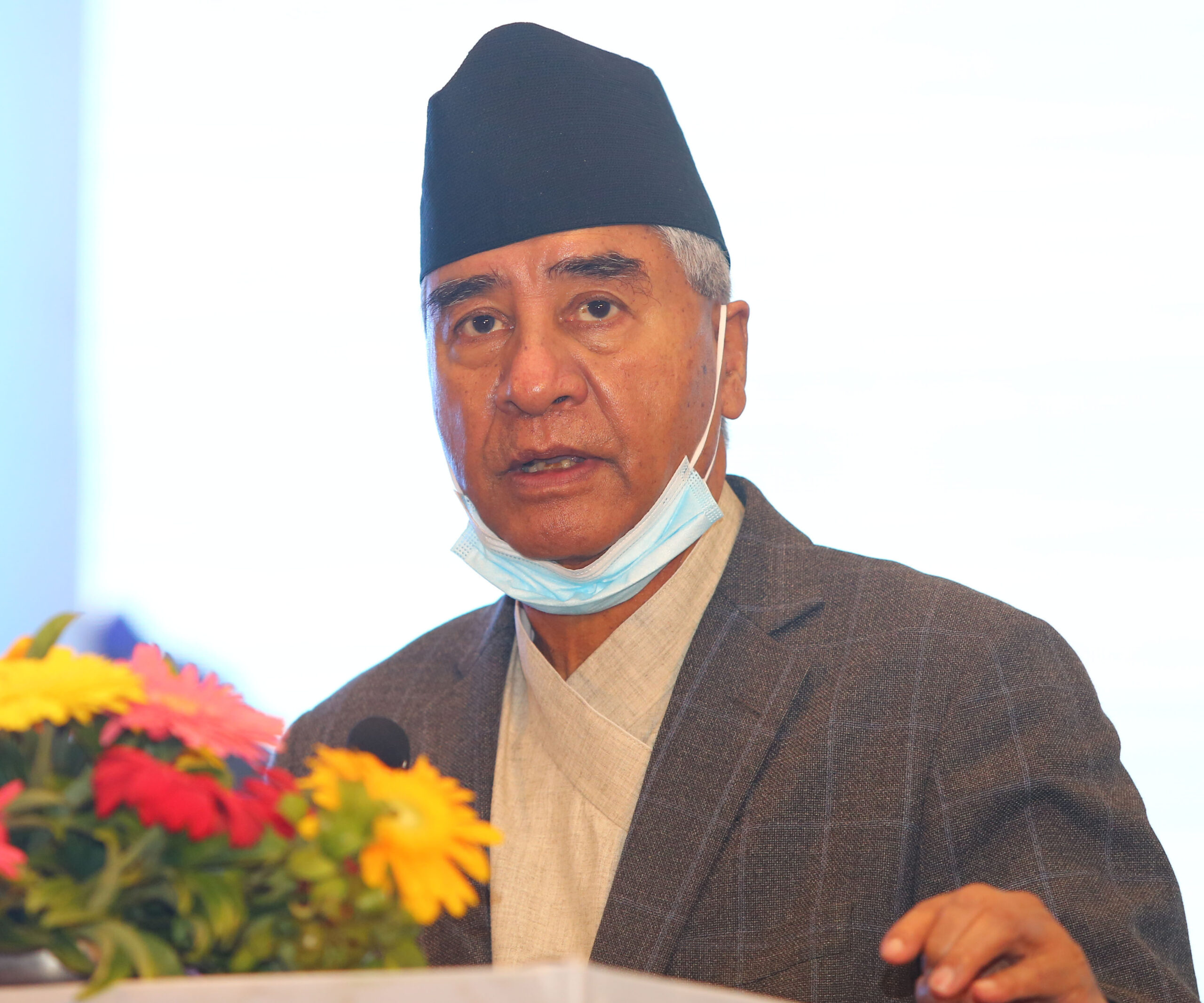
KATHMANDU: Prime Minister Sher Bahadur Deuba has said that Nepal has focused on improving health infrastructures and supplying oxygen gas and other essential health equipment to fight against COVID-19.
Addressing the ‘Global COVID-19 Summit’ through virtual means organised by US President Joe Biden today, Prime Minister shared about the initiatives taken by Nepal for the vaccine against COVID-19.
He thanked US President Biden for hosting the Summit and mentioned that Nepal has increased testing scope in order to prevent and control coronavirus.
PM Deuba shared, “We have been continuing educating about safety measures at public health sector to be protected from COVID-19.”
He further said that 50 per cent population of the eligible population to get vaccine against COVID-19 has got first dose of vaccine while one-third eligible population has been fully vaccinated so far.
Prime Minister Deuba added that the country has ensured to provide full dose of vaccine against COVID-19 to all eligible Nepali citizens by April 2022.
The PM mentioned that Nepal has expand the testing scope and vaccination drive against COVID-19 even to remote areas.
Extending gratitude towards the foreign donor nations and partners for their support in prevention and control of coronavirus, Prime Minister Deuba thanked the development partners contributing to the Global Health Security Challenge Fund.
Nepal adopts pro-poor policies to tackle poverty, hunger: PM Deuba
Prime Minister Sher Bahadur Deuba has said the government has adopted pro-poor and inclusive policies to tackle poverty and hunger. Such policies are also for saving people’s lives, and rebuilding the economy so as to make it better and stronger.
In his virtual address to the Food Systems Summit organised by UN Secretary-General Antonio Guterres today on the sidelines of the 76th United Nations General Assembly (UNGA), the Prime Minister said, “A mountainous country, Nepal has a food system that is highly vulnerable to disasters caused by climate change and extreme weather. The COVID-19 pandemic has further limited our fiscal space, endangered our food chains, and risked reversing our development gains.”
The Prime Minister went on to say that the Nepal Government aimed to protect farmers engaged in food production by adopting a life cycle approach, the Ministry of Foreign Affairs said in a press statement.
According to him, there is no better time than this to deliberate on food systems. Today one in every ten people on Earth is under-nourished, and the COVID-19 pandemic has further worsened food insecurity. “With disruptions in supply chains and rising food prices, the situation in LDCs and LLDCs is all the more acute.”
Highlighting on the significance of the event, he said it was important for this Summit to be bold. He stressed the need of translating the commitment into building food systems fit for the future.
“These efforts are made in line with our constitution’s promise to ensure affordable, healthy, and nutritious food for all Nepali people,” the Prime Minister said utilizing the forum to make it clear that Nepal is determined to achieve zero hunger by 2030.
He further added that transformative investment in agriculture would be crucial to ensure food security for all. This included harnessing modern technologies and making high yield seed variants available in all countries.
“Nepal remains committed to our collective efforts to ensure that nutritious food is a reality for all.”





